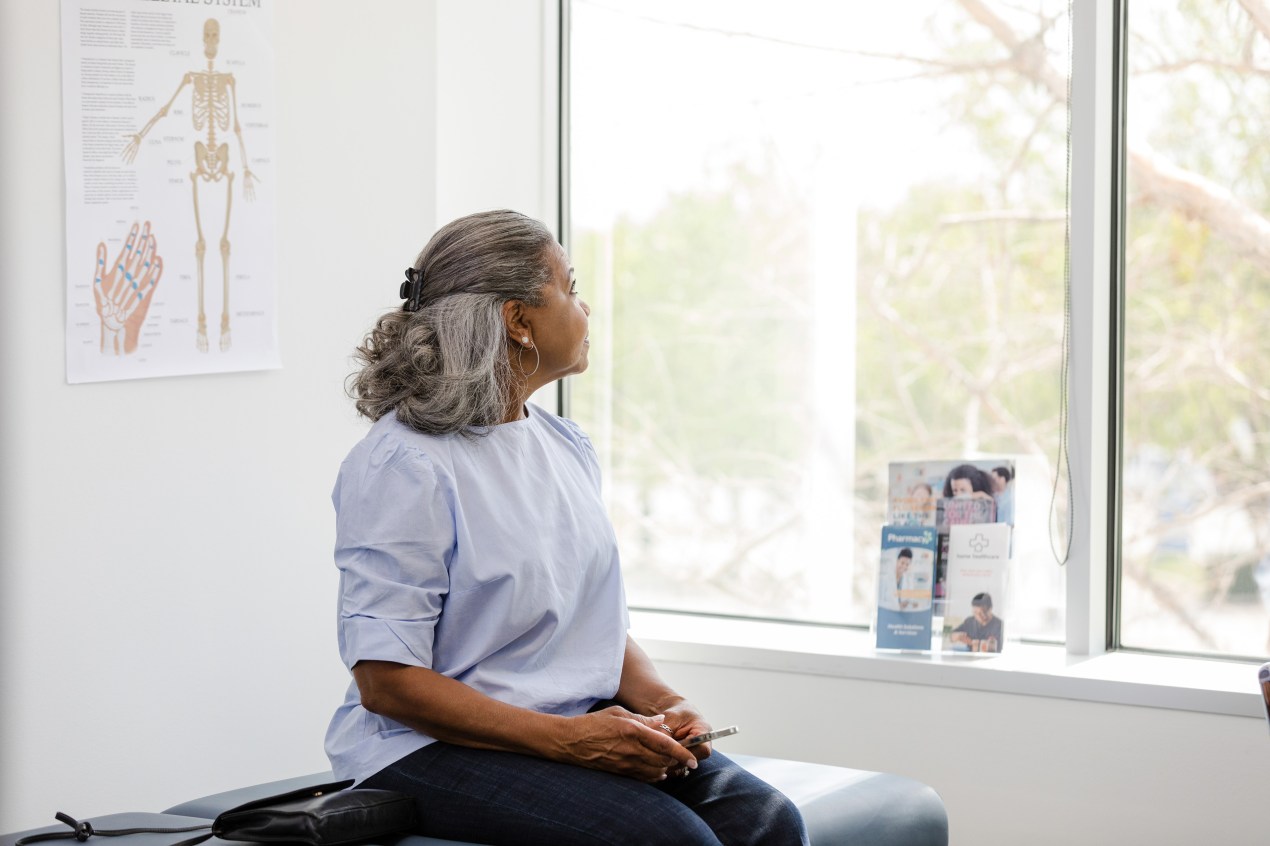Many people from racial and ethnic minority groups brace themselves for insults and judgments before medical appointments, according to a new survey of patients that reaffirms the prevalence of racial discrimination in the U.S. health system.
The KFF survey of nearly 6,300 patients who have had care in the past three years found that about 55% of Black adults feel they have to be very careful about their appearance to be treated fairly by doctors and other health providers. Nearly half of American Indian, Alaska Native, and Hispanic patients feel similarly, as do about 4 in 10 Asian patients.
By comparison, 29% of white people surveyed said they worried about their appearance before appointments.
“In 2023, the notion that any person must prepare for discrimination is sad on one hand and angering on the other,” Burgess Harrison, executive director of the National Minority Health Association, wrote in an email. “The stress that this causes, in addition to whatever health issue involved, is crazy.”
Discrimination has long been a concern for both patients and health providers in the U.S., where racial disparities in health outcomes are vast and particularly unfavorable toward Black people.
A 30-year-old Hispanic man in Illinois who responded to the KFF survey told researchers he wears clothes to health care appointments with the logo of the university where he works. He noticed, he said, that when health care providers know he is a professor, they listen to him more intently and involve him more in care decisions.
A 44-year-old Asian woman in California told the researchers that her white male doctors ignored her concerns about breathing issues, telling her she “was probably just thinking too hard about breathing.” She was later diagnosed with asthma.
The two respondents were not identified in the study.
The survey offers “a way to actually quantify what those experiences are with racism and discrimination, and the multitude of ways they then impact people’s lives,” said Samantha Artiga, director of KFF’s racial equity and health policy program.
“For folks who have been following these issues for a long time, the findings are not unexpected,” she said.
Other findings:
- A third of adults reported at least one of several negative experiences with a health care provider in the past three years, such as a professional assuming something about them without asking, or suggesting they were to blame for a health problem.
- Nearly a quarter of Black adults, 19% of Alaska Native and Native American adults, 15% of Hispanic adults, and 11% of Asian adults said they believed they endured negative treatment because of their race or ethnicity.
- Twenty-two percent of Black adults who were pregnant or gave birth in the past 10 years said they were denied pain medication they thought they needed. Just 10% of white adults in similar circumstances reported the same complaint.
When people don’t feel respected or welcomed by their health care providers, they may be discouraged to reach out for medical help or may switch providers more often, Artiga said. Members of minority populations are found to be “experiencing worse health as a result of experiencing unfair treatment in the health care system,” she said.
The survey also found that discrimination outside the health care system had health consequences. People who said they experienced discrimination in their everyday lives were more than twice as likely to report often feeling anxious, lonely, or depressed compared with those who rarely or never faced discrimination.
Black people who self-reported darker skin tones were more likely to have encountered discrimination than those with lighter skin, the survey found.
The survey reveals “how persistent and prevalent experiences with racism and discrimination remain today, in daily life and also in health care, despite, really, the increased calls and focus on addressing racism,” said Liz Hamel, KFF’s director of public opinion and survey research.
Diversity among health care providers matters, the survey found. Most people of color who participated in the survey said that fewer than half of their medical visits in the past three years were with a provider who shared their race or ethnicity. But Black patients who had at least half their visits with a provider of their race or ethnicity, for example, were more likely to report better experiences, such as their doctor explaining things “in a way they could understand” or asking them about health factors such as their employment, housing, and access to food and transportation.
Nearly 40% of Black adults whose health providers were also Black said they discussed such economic and social subjects, while just 24% of Black adults who saw providers who weren’t Black said those issues were brought up.
Harrison, of the National Minority Health Association, wrote that “a renewed emphasis on recruiting more people of color into the health care field is vital.”
The survey, he added, “painfully illustrates that racial bias in healthcare is as damaging as any disease.”
KFF’s “Survey on Racism, Discrimination and Health” was conducted from June 6 to Aug. 14 online and by telephone among a nationally representative sample of U.S. adults in English, Spanish, Chinese, Korean, and Vietnamese.

